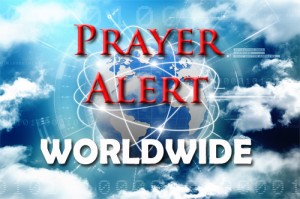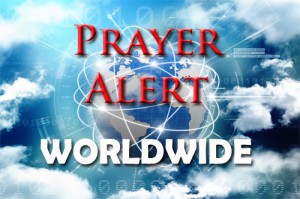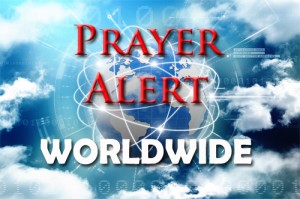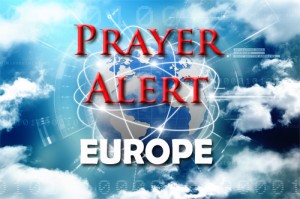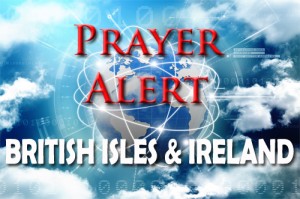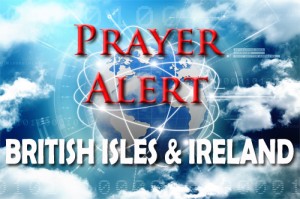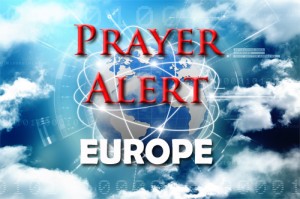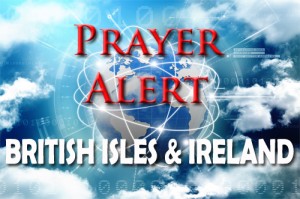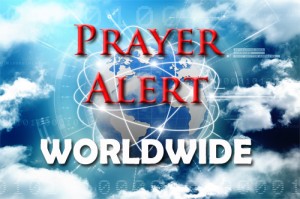Displaying items by tag: Government
Israel: UK puts UN Human Rights Council (UNHRC) ‘on notice’
Last week UNHRC issued five resolutions against Israel, including accusations against its activities in the Golan Heights. The British ambassador to the UN said, ‘Israel has a population of eight million, in a world of seven billion. Yet since its foundation UNHRC has adopted 135 country-specific resolutions; 68 of them have been against Israel. Justice is blind and impartial. The selective focus on Israel is neither. So today we put the Human Rights Council on notice. If things do not change, in future we will adopt a policy of voting against all resolutions concerning Israel’s conduct in the occupied Syrian and Palestinian territories.’ He added, ‘Peace is built through trust and goodwill on all sides. Human rights violations break down that trust. By continuing an unacceptable pattern of bias, the Council discredits its voice and hardens positions on both sides.’
Egypt: persecution, politics and poverty
Egyptian Christians, as security worsens, are fleeing the increasingly lawless Sinai Peninsula, some with just the clothes on their backs, after several killings and explicit calls by IS to target them. The displacement has reached a scale rarely seen outside natural disasters. Pray for God’s comfort and strength for all experiencing continued death threats, and for those who have fled from their homes and communities. Ex-president Hosni Mubarak was freed last week after six years in custody. His release comes amid an economic crisis after years of political tumult and worsening security. Egyptians complain of empty pockets and rumbling bellies as inflation exceeds 30% and the government tightens its belt in return for loans from the International Monetary Fund. A politician said that the economic crisis and high prices, plus the fear of terrorism, take priority over everything, including politics. See
Turkey: constitutional referendum
In a referendum on 16 April, Turks will vote yes or no to constitutional amendments to shift Turkey from a system where executive powers lie with the prime minister and are checked by parliament to one giving unprecedented powers to the president. Many fear this will lead to one-person rule, with power to suspend parliament and appoint all ministers and high-ranking officials. Turkish Christians are concerned about rising nationalism, and also the random arrests since last summer’s coup attempt. American pastor Andrew Brunson, who has been in detention since October, still has no clear outline of the charges against him, although the prime minister has promised to speed up his court case. He and his family have been in Turkey for over twenty years, leading a church in Izmir. See:
Romania needs our prayers
A Christian in Romania writes, ‘We need prayer for President Klaus Iohannis to be strong in this time of battle against corruption. The left wing want to remove his right to nominate the general prosecutor and the director of the National Direction against Corruption. Until this time the justice representatives did their job and thousands are in prisons or attending court. The coalition majority is very corrupted. Many have committed felonies and should be in prison, but they have parliamentary immunity. Pray for those who are honest to dissociate from those corrupted and for this coalition to be dissolved. In this way we can hope for the election of a new government.’ The current law pardons politicians who commit felonies, receive bribes or offer favourable contracts for families and friends. This parliament wants to decriminalise these actions and set prisoners free. The people are demonstrating in the streets against this proposals.
Inequality in the UK
The Equality Trust reports, ‘The richest 10% of households spend more on eating out (£58.40) than the poorest 10% of households spend on housing, fuel and power combined (£44.50). They spend £34.50 per week on furniture and furnishings, that’s more than the weekly food shop of the poorest 10% (£30.40).’ The list also covers alcohol, clothing and pets, revealing a massive gap between the richest and poorest households and huge inequality in our society. We often criticise the poor for being wasteful, but the richest are spending more on their pets than the poorest are on clothing their families. Many people are working, budgeting, and making difficult choices about which necessities to go without. Millions more are in danger of falling into debt and poverty. UK income inequality is among the highest in the developed world and evidence shows that this results in poorer mental and physical health, higher violent crime, poorer educational outcomes and lower levels of trust.
Refugees: who should come in?
In the wake of the closure of the Dubs scheme (see article 1 in the Europe section) allowing unaccompanied minors from Calais into the UK, the Government has come under fire. Lord Dubs (himself a refugee from Nazism), who introduced the scheme, is outraged at its closure. The Archbishop of Canterbury was ‘shocked’ over the decision and asked the Government to reconsider. Home Secretary Amber Rudd said the French authorities did not want the scheme to continue because it encourages people-traffickers. Deut.10:18,19 says, ‘He defends the cause of the fatherless and the widow, and loves the foreigner residing among you, giving them food and clothing. You are to love those who are foreigners, for you yourselves were foreigners in Egypt’. Also Job 31:32 says, ‘No stranger had to spend the night in the street, for my door was always open to the traveller.’
Romanian parliament approves anti-corruption referendum
Following further pressure from public protests, Romania’s parliament has agreed to hold a referendum on fighting corruption. An estimated 70,000 people took to the streets last Sunday, the thirteenth consecutive night of anti-government demonstrations. They have accused the government of attempting to water down anti-corruption laws. As reported in Prayer Alert last week, the parliament has already backed down over a planned decree that would have made the crime of abusing power punishable only if the sum exceeded 200,000 lei (£37,600). Prime minister Sorin Grindeanu withdrew the decree more than a week ago, but nightly demonstrations have continued to draw large crowds demanding the resignation of his government, which assumed power last month. On Monday, 310 lawmakers voted in favour of the referendum proposed by the president, Klaus Iohannis. The exact wording of the referendum has not yet been decided, but it is seen as a way to bolster support for the fight against corruption. See also:
Romania: answered prayers
Last week we prayed for a peaceful and satisfactory outcome when 200,000 people took to the streets over a government decree to free dozens of officials jailed for corruption. This week Romania's government scrapped the controversial decree. Now many politicians will no longer be shielded from prosecution for corruption. The decision came at an emergency meeting on the issue, following days of further street protests. One of those behind the move said it was to restore calm in Romania, but also strongly criticised the judiciary. Protesters have vowed to keep the pressure on the cabinet, with some demanding that the entire government should quit. One of them, Daniel, said, ‘I hope that this is a real repeal. We are going to keep an eye on them to make sure we are not being had’. The protests have been the country's largest since the fall of communism in 1989.
Many Irish pensions cut
36,000 people, two-thirds of them women, have had their Irish state pensions cut by as much as €1,500 (£1,275) a year, as a result of changes introduced in 2012. While those entitled to a full pension have been unaffected by the changes, many of those who would have been in line for smaller pensions have lost out. Justin Moran of Age Action said, ‘It is a myth that the state pension was protected by the last government. It was cut, drastically cut, for tens of thousands of older people.’ In 2012 the government changed the eligibility criteria for a full pension, arguing that the changes were necessary to protect ‘core payments’ and ensure sustainability of the state pension; but one side effect of the changes has been to diminish the entitlements of some 36,000 pensioners. Women, who historically would have spent more time out of the workforce, have been hit particularly hard.
Somalia: a new president is elected
On Wednesday Somalia's presidential elections took place, with over twenty candidates to choose from. In a surprise result, former prime minister Hassan Sheikh Mohamud decisively defeated the incumbent president. It is the first time since the 1991 overthrow of President Said Barre that a new leader has been chosen inside the country; the UN sees this as a sign of improving security. The election, in Mogadishu airport (considered the safest place in the city), went ahead under close security against the militant group al-Shabaab, which had recently carried out several attacks in the capital. Mr Mohamud is a professor and activist who has worked for several peace and development organisations including Unicef. It remains to be seen if his election will make any difference for the small, secret community of Somali Christians. They face extreme persecution from their communities and tribes. If their faith is discovered, followers of Christ could be murdered on the spot. Al-Shabaab has stated publicly that it 'wants Somalia free of all Christians'. According to Open Doors, the country is tdhe second-most dangerous in the world for Christians. See:
